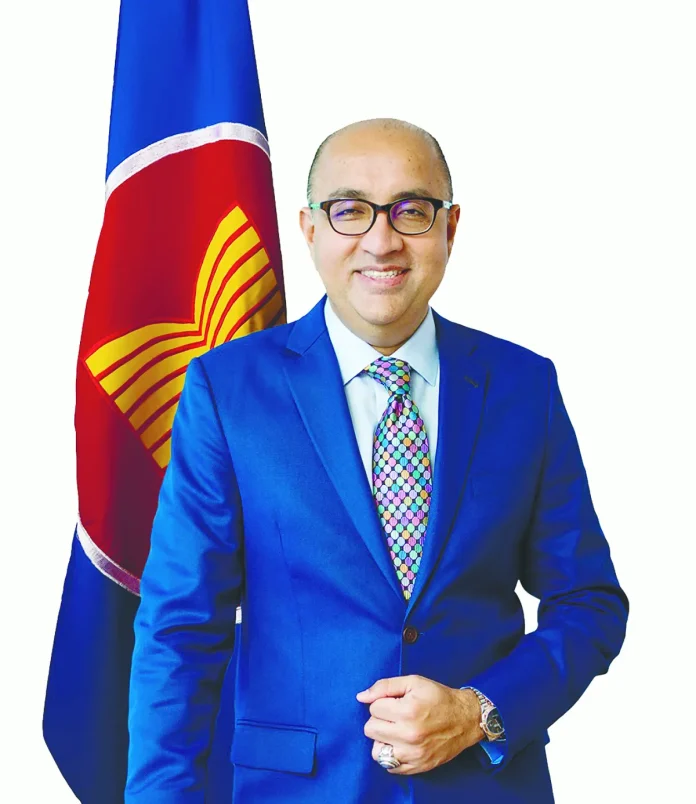KUALA LUMPUR: Asean’s Digital Economy Framework Agreement (Defa) negotiations are expected to finish by mid-2026, said Asean Economic Community Deputy Secretary-General Satvinder Singh (pix).
He said the agreement, once finalised, will anchor the region’s relevance and importance to the rest of the world.
“We are finishing most of the negotiations. Substantially they’ve been finished this year but all of the negotiations are going to be completed by the first half of next year and we are aiming to get the Defa agreement signed in the year 2026,” he said in a special address at the Powering the Intelligent Age Summit, jointly hosted by the Malaysia Centre for the Fourth Industrial Revolution (MYCentre4IR) and the World Economic Forum (WEF) at Sasana Kijang, Kuala Lumpur today.
Satvinder said the substantial conclusion of Defa negotiations was announced at the Asean Economic Council meeting on Oct. 24.
“That itself marks a historic step towards Asean establishing the world’s first region-wide digital economic framework,” he said.
Satvinder said some studies show that if the Defa agreement is implemented in a substantial and comprehensive manner, Asean will be able to harness even greater growth in its digital economic space.
“The size of Asean’s digital economy today is touching US$263 billion (RM1.1 trillion) in gross merchandise value, a 15% year-on-year increase from 2023, and by 2030 it is projected to reach US$1 trillion.”
“We are thinking and we have been told that there may be even a doubling of the size of our digital economy in Asean to a size of US$2 trillion,” he said.
He added that Asean is rapidly adapting to the digital landscape, embracing new technologies as a key driver of growth, competitiveness and productivity across the region.
“Data-driven business models, fintech and AI-powered platforms have become the new norms underlying the success of our businesses across the region,” he said.
Building on this momentum, Satvinder said the Defa represents a new generation of legally binding digital agreements, unlike anything Asean has undertaken before.
“It’s really embodying even more ambitious and forward-looking commitments than Asean has ever undertaken,” he said.
He said the Defa will cover key areas including cross-border data governance, digital payments harmonisation, cybersecurity, customs duties on electronic transactions, and the adoption of the UNCITRAL Model Law on Electronic Transferable Records.
“All of these are expected to deliver significant benefits for the business community, facilitate trade, promote innovation and further enhance our position as a dynamic and interconnected digital hub,” he said.
According to the World Economic Forum (WEF), it will be the world’s first region-wide, binding agreement focused exclusively on digital economy governance.
Unlike digital and e-commerce provisions embedded in broader trade agreements such as the recent EU-Singapore Digital Trade Agreement, the WEF said, Defa stands out as a dedicated and comprehensive framework to address the complexities and opportunities of the digital economy, it said.
“More than an economic pact, Defa is a strategic blueprint for how our nearly 680 million people can access a digital future that is open, secure and inclusive,” it said.
Asean’s digital economy is projected to surge from US$263 billion in 2023 to US$1 trillion by 2030, and could hit US$2 trillion if the Asean Digital Economy Framework Agreement is implemented effectively.








